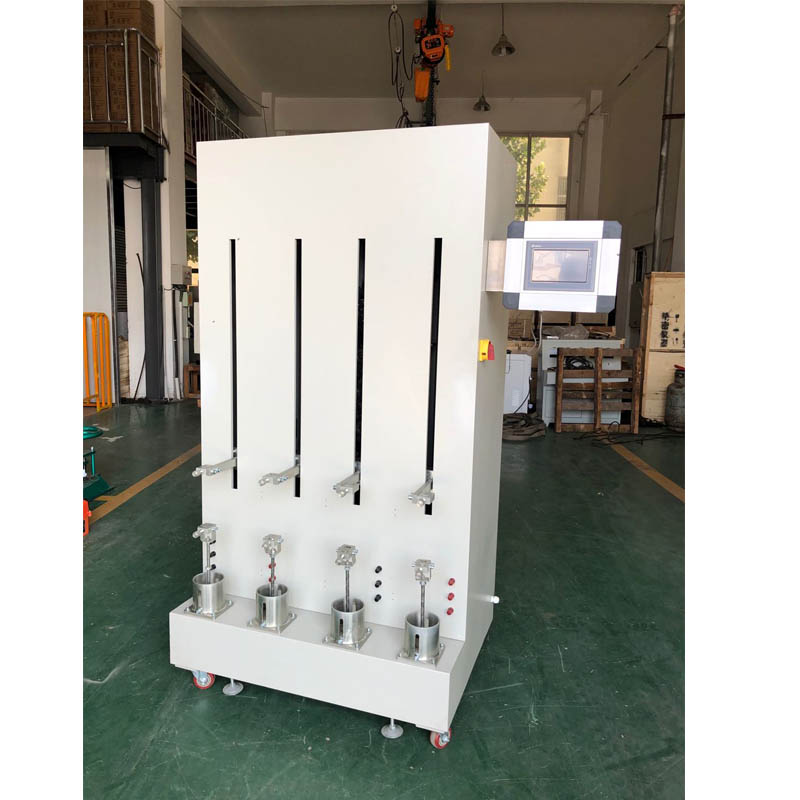tensile testing machine manufacturer
The Importance of Tensile Testing Machines in Material Science
Tensile testing machines are vital tools in the field of material science and engineering. These machines play an essential role in determining the mechanical properties of materials, such as tensile strength, ductility, elasticity, and yield strength. Manufacturers of tensile testing machines are key contributors to ensuring the reliability and quality of materials used in various industries, including construction, automotive, aerospace, and manufacturing.
A tensile testing machine operates by applying a controlled force to a material specimen until it fails. The machine measures the amount of force applied and the extension (or strain) of the material, allowing engineers to create stress-strain curves that are fundamental to understanding the behavior of materials under stress. This testing process not only helps in assessing the mechanical properties of materials but also in quality control, research, and development.
The advancements in technology have led to the development of sophisticated tensile testing machines that offer enhanced accuracy and efficiency. Many modern machines are equipped with advanced digital displays and software that automate the data acquisition and analysis processes. This not only saves time but also minimizes human error, ensuring that the results obtained are both reliable and repeatable.
tensile testing machine manufacturer

When selecting a tensile testing machine, manufacturers consider several key factors. The capacity of the machine is crucial; it must be suitable for the range of materials to be tested, from soft plastics to hard metals. Additionally, the machine's speed and precision are significant; a high-speed testing machine can provide real-time data, which is invaluable for dynamic materials testing. Features like specimen grips, extensometers, and environmental chambers also play a role in the machine's versatility and usability.
Moreover, compliance with international standards is essential for these machines. Bodies like ASTM and ISO dictate the testing methods and criteria, ensuring that results are standardized and can be compared across studies and applications. Manufacturers of tensile testing machines strive to meet these standards while continually innovating to enhance their equipment's performance.
The role of tensile testing machine manufacturers extends beyond merely producing machines. They provide essential support and services, including installation, training, and maintenance, helping laboratories and engineering firms fully utilize their equipment. This customer support is crucial, as improper use of testing machines can lead to inaccurate results, compromising material safety and performance.
In conclusion, tensile testing machines are indispensable in assessing the mechanical properties of materials, and manufacturers play a pivotal role in their design and innovation. As industries continue to evolve, the demand for reliable, precise, and efficient testing solutions will only increase. Ongoing advancements in technology will further enhance the capabilities of tensile testing machines, ensuring that engineers and material scientists can continue to innovate and produce safer, stronger materials for future applications. The journey of material testing continues, guided by the expertise and commitment of tensile testing machine manufacturers, who are at the forefront of this critical field.
-
Why the Conductor Resistance Constant Temperature Measurement Machine Redefines Precision
NewsJun.20,2025
-
Reliable Testing Starts Here: Why the High Insulation Resistance Measuring Instrument Is a Must-Have
NewsJun.20,2025
-
Flexible Cable Flexing Test Equipment: The Precision Standard for Cable Durability and Performance Testing
NewsJun.20,2025
-
Digital Measurement Projector: Precision Visualization for Modern Manufacturing
NewsJun.20,2025
-
Computer Control Electronic Tensile Tester: Precision and Power for the Modern Metal Industry
NewsJun.20,2025
-
Cable Spark Tester: Your Ultimate Insulation Assurance for Wire and Cable Testing
NewsJun.20,2025
 Copyright © 2025 Hebei Fangyuan Instrument & Equipment Co.,Ltd. All Rights Reserved. Sitemap | Privacy Policy
Copyright © 2025 Hebei Fangyuan Instrument & Equipment Co.,Ltd. All Rights Reserved. Sitemap | Privacy Policy
